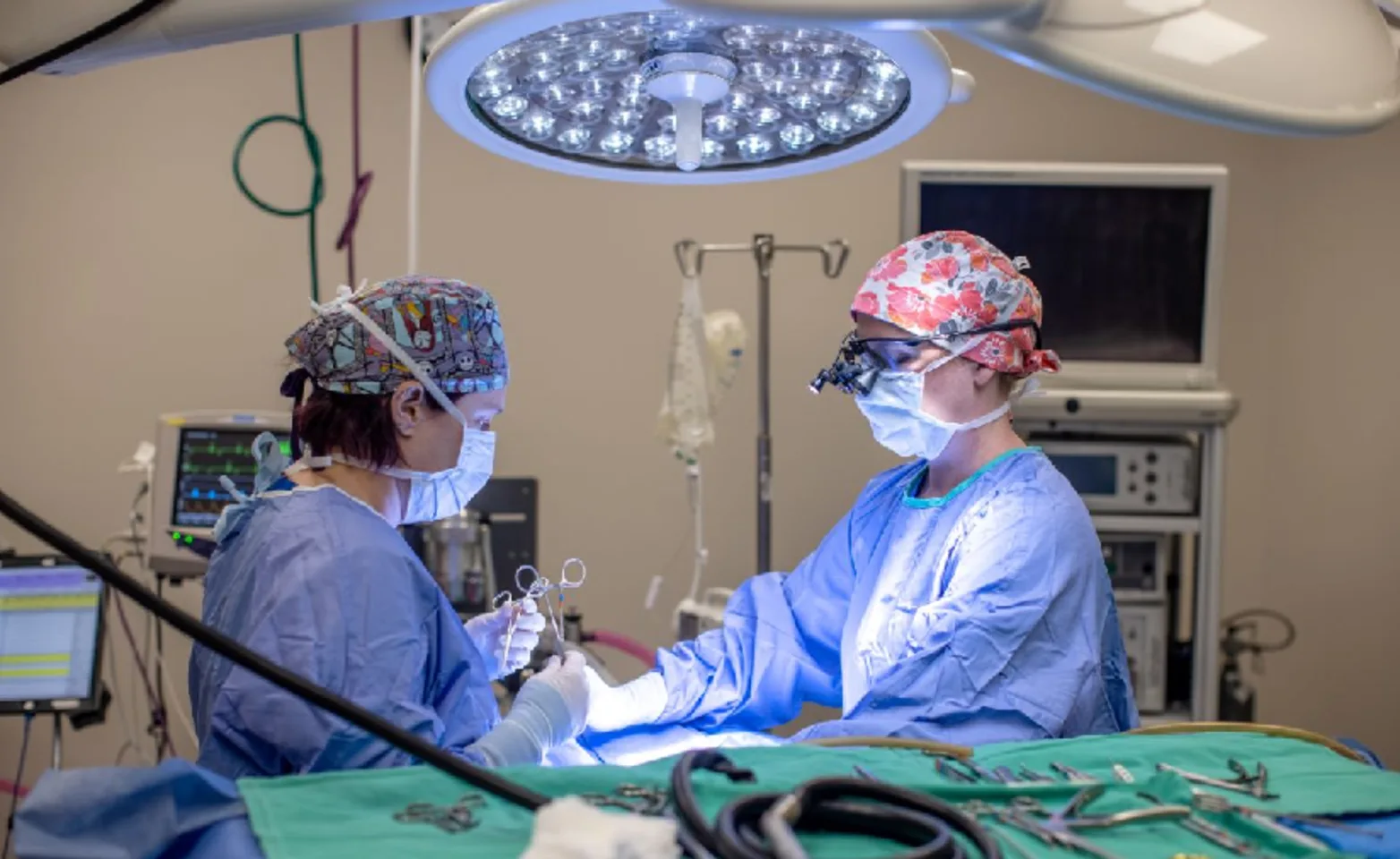MissionVet Specialty & Emergency

At MissionVet Specialty & Emergency, our Neurology & Neurosurgery department has a profound understanding of the bond that exists between you and your pet. Veterinary neurologists specialize in the diagnosis and treatment of disease processes affecting the brain, spinal cord, muscles and peripheral nerves. At MissionVet, we utilize advanced diagnostic modalities in order to accurately and most efficiently determine the cause of your pet’s seizures, back pain or inability to walk.
Our Neurology & Neurosurgery Team
The Neurology & Neurosurgery department offers a full complement of on-site neurodiagnostic testing including:
✔️ Magnetic Resonance Imaging (MRI)
Our 1.5 Tesla GE MRI unit provides high-resolution, multi-plane images allowing us to visualize soft tissue structures including the nervous system that would otherwise not be visible with traditional radiography.
✔️ Computed Tomography (CT)
Our 16-slice helical CT scanner generates 3D images that provide our specialists precise, detailed and quick information that allows them to provide your pet the best diagnosis and treatment available.
✔️ Digital Radiography
✔️ Electrodiagnostic Procedures
Electromyography (EMG)
Brainstem Auditory Evoked Response (BAER) – Hearing Test
Nerve Conduction Velocity Testing

Patients evaluated by MissionVet Neurology will be able to have diagnostic tests performed (most often MRI +/- spinal tap) followed by treatment in the very same facility. Eliminating the need for transport and reducing the length and number of anesthetic events will help maximize patient safety and comfort, regardless of the underlying disease.
Our neurology team is available to evaluate, diagnose and treat your pet’s symptoms of neurologic dysfunction such as weakness, paralysis, back and neck pain, seizures, gait abnormalities, circling, and balance disorders. We then develop a specialized treatment plan to provide optimal care for the individual patient and family. We work closely with your pet’s primary care veterinarian to provide balanced and complete care.
Our board-certified neurologist is trained in medical neurology and neurosurgery, and specializes in treating the following conditions:
Treatment or Vertebral Disorders
Cervical and thoracolumbar intervertebral disc extrusions
Vertebral fractures/luxations
Atlantoaxial luxations
Decompression of vertebral column and spinal cord cancer
Lumbosacral decompression
Cervical stabilization (for Wobbler’s syndrome)
Spinal fracture stabilization
Inflammatory Disease (infectious and non-infectious meningitis)
Treatment of Brain Disorders
Seizure diagnosis and treatment
Encephalitis (inflammation of the brain – MUO, NME, NLE and infectious disease)
Brain tumor diagnosis and surgery
Brain trauma
Neuromuscular Disease
Infectious or immune-mediated disease including, but not limited to:
Myasthenia Gravis
Masticatory Myositis
Polymyositis
Nerve Injuries
Degenerative Disease
Degenerative Myelopathy
Cognitive dysfunction
Congenital Malformations
Hydrocephalus
Chiari-like malformation
Syringohydromyelia
Balance (Vestibular) Disease
Incoordination
Ataxia
FAQs
Why should my pet see a veterinary neurologist or neurosurgeon?
Common examples of clinical signs in pets with neurological disease include:
• Seizures • Abnormal behavior • Balance problems • Vision or hearing disturbances • Difficulty walking or paralysis • Back or neck pain
Should I continue to give medications prescribed by my primary care veterinarian on the morning of the appointment with Mission Veterinary Neurology?
Yes. Please continue to administer all medications as prescribed on the morning of the appointment. We recommend withholding the morning meal on the day of the visit in case anesthesia for work-up or surgery is necessary. Please administer only enough food or pill pocket needed to administer any medications. Access to water is okay.
Why do we recommend performing advanced diagnostics like MRI and spinal tap if clinical signs were only recently noted?
We recognize that whether or not to pursue a neurologic work-up can sometimes be a big decision for a family to make. We advocate early investigation so that we can provide the most accurate diagnosis and tailor the treatment to the pet so that he or she can have the best outcome possible.
What surgeries would a veterinary neurosurgeon perform?
Removal of disk material or spinal decompression to treat intervertebral disk herniation in the back or neck
Spinal fracture repair
Treatment of congenital neurological disease (atlanto-axial stabilization, foramen magnum decompression for Chiari-like malformation, abnormal spinal curvatures)
Spinal stabilization for cervical spondylomyelopathy (aka Wobbler’s disease)
Brain tumor removal or surgical biopsy
Spinal cyst removal/decompression
Ventriculoperitoneal shunt placement
Why would my pet need advanced diagnostics (such as MRI or CT)?
The tissues of the nervous system are hidden behind soft tissue and dense bone. Advanced imaging tools, such as MRI and CT, allow us to visualize these deep structures in order to determine the problem and what treatment or therapy your pet may need. These machines are very accurate and provide precise diagnostics that give us the most information possible to help your companion.
Does my pet need to be under anesthesia for an MRI or CT?
When performing an MRI or CT, each patient (human or animal) must be VERY still to obtain accurate images. Because we aren’t able to explain to our pets that they must be completely still during the imaging process, anesthesia is necessary to acquire exact appropriate imaging through an MRI or CT.



